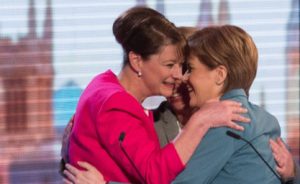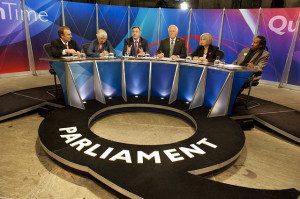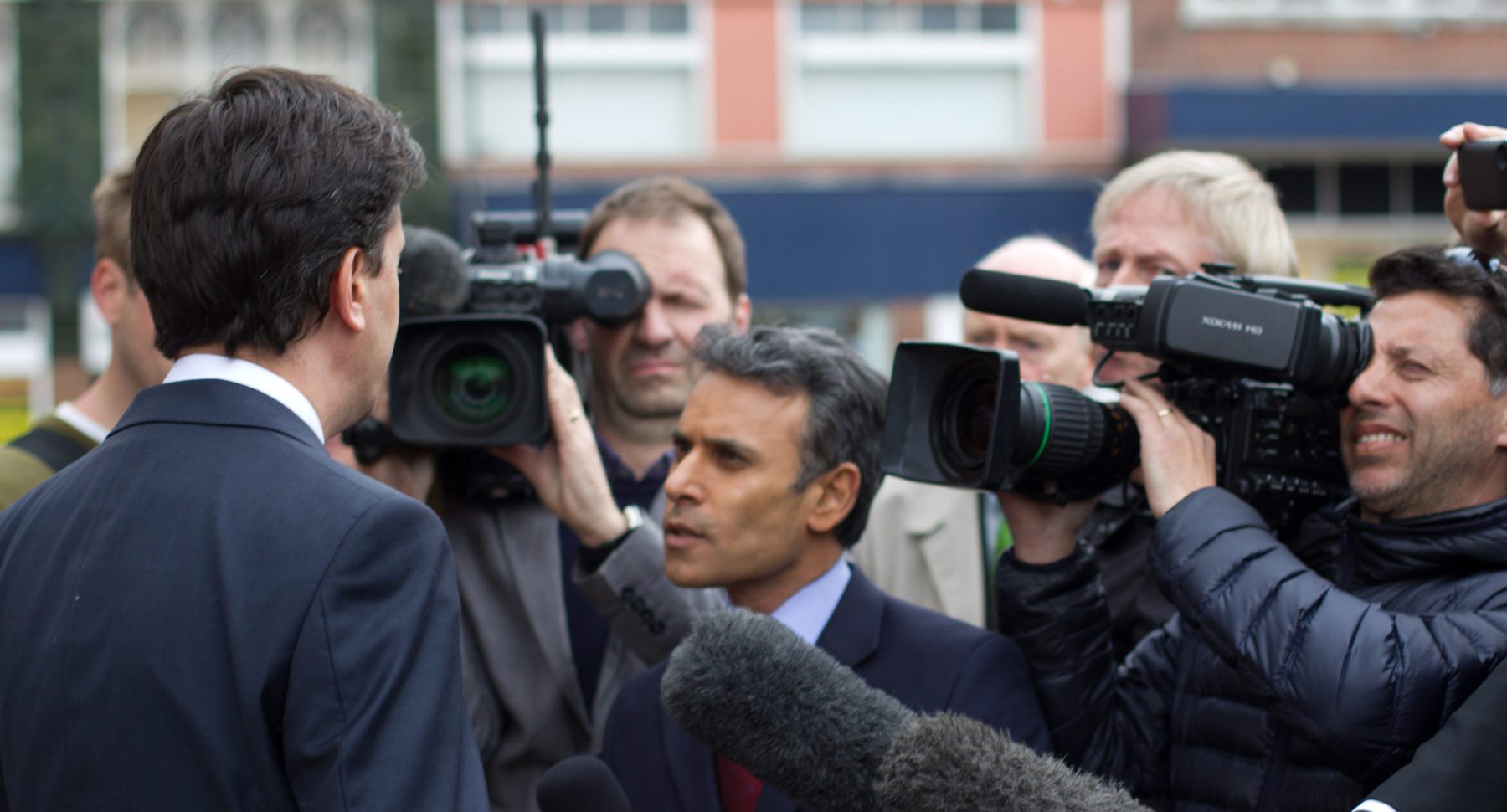Is televised election coverage effective?
[dropcap]A[/dropcap]s polling day draws nearer, our screens are becoming more and more saturated with politicians asking for our votes. All the major channels seem to be taking part in the election coverage, with Channel 4’s Battle for Number 10, the ITV Leaders’ Debate, and the BBC’s Election Debate 2015 all airing in the past two months. But how effective has this election coverage been? Has it really changed anyone’s mind?
Two TV writers offer their views…
Ellie Campbell says “Yes“
Television is a medium which constantly documents all sections of society. Politics equally cannot escape this.
It is easy to discredit televisual coverage of politics due to the performative nature and entertainment value of literally anything televised, but – on a basic level – the coverage of politics and the General Election increases exposure of parties’ policies. This can only increase turnout on polling day. And increased voter turnout is ultimately only a good thing.
TV is simply another popular medium to get information across, and the current television coverage of recent debates is especially positive in an era where certain sections of society are increasingly politically disengaged.
It seems obvious that one of the easiest (and most accessible) mediums should be used to benefit this country by developing a well-informed electorate

Leanne Wood (Plaid Cymru), Natalie Bennett (Greens), and Nicola Sturgeon (SNP) hugging it out after the ITV Leaders’ Debate. Photo: Flickr / Plaid Cymru
The recent televised debate with the seven main party leaders has also aided in giving smaller parties such as the SNP, the Greens, and Plaid Cymru attention, helping to break the Westminster bubble. With it being predicted that the election in a months’ time will be decided by the smaller parties, this televisual coverage is increasingly relevant in deciding the future of this country. Likewise – thanks to the debates’ cross-examinations of party policies regarding the NHS, the economy, education, and immigration – the claim that politicians are “all the same” is proven wrong, as differences are clarified.
Another massive benefit of politics being discussed on live television – whether it be debates or Question Time – is that it’s harder to edit or spin towards a certain angle; it is simply left for the public to make up their mind. Yes, politicians are practised and polished with their one-liners and main points of inclusion, but there are some things that cannot be predicted, like hecklers or responses to other parties’ policies.
For those who will not be issue-voting, televised debates help can help a party to project an air of confidence: a party which is seen to have competent, charismatic leader will thrive in public opinion, in comparison to a leader who is overly-passive or bumbling.
After all, if a leader can’t appear at least semi-competent in a debate on basic issues, how will they lead the country?
This late in the game, with neither Labour nor the Conservatives surging ahead in the polls, the question is whether ultimately it will be policies or leadership which determines how voters decide. In either case, the debates could have a significant impact.
Reece Goodall says “No“
Politics is one of the most important things affecting our world, and so it seems a shame that TV coverage lets it down massively.
As the politicians try to convince us to vote for them, they exploit the television, and thus change the face of the game. What should really be a decision based on policies and reason morphs into a choice of who is the most photogenic; who has the nicest smile; and who seems the most fun down the pub (51% of Warwick students think that Nigel Farage could drink a pint of purple the fastest).
Last general election, a friend of mine voted for the politician she judged to be the most handsome – it was a worryingly shallow reason to vote for the person who is going to lead the country, but a sadly typical one.
TV has changed politics into a popularity contest

A typical episode of Question Time – Joey Essex claims that politicians might look more “normal” if they wore onesies to this kind of thing. Photo: Flickr / UK Parliament
In covering politics, the news has to strike a balance between being informative and being entertaining – otherwise it will lose its audience. It condenses serious discussion of policies for the general audience, often failing to provide the knowledge necessary to make an informed judgement. The real coverage is left to specialised shows like Question Time, which only people who already have an interest in politics are going to watch.
In order to capture the attention of the average viewer, the TV incorporates popular celebrities to discuss politics, as if broadcasting companies think you’re too thick to care about politics unless the person giving their views is Joey Essex. This is why token celebrities crop up on political discussion shows – because without them, TV fears no one would come to see the politicians. Often the choices are controversial or biased, which shifts the story’s focus onto the figure themselves, rather than the politics they are backing.
But the celebrities are preferable to political commentators: these bland suits are wheeled out to engage in fancy guesswork, their job solely being to speculate. Their pointlessness is most apparent on election night, when they just stand around for hours, occasionally reading out a result and then guessing some more. ‘This seat was won by this party, and so it may be affecting this leader’s confidence now’ – it is imaginative nonsense, and it certainly is not gripping.
I may be in a minority, but I prefer the news not to try and predict the future like a political Mystic Meg
All in all, the problem with TV coverage of politics is a fairly obvious one – that it tends to neglect the politics in favour of what makes better television, and that’s clearly not how it should be.
![]() What’s your stance on televised election coverage? Has any of it changed your mind about how to vote? Let us know in the comments below, or Tweet us @BoarTelevision!
What’s your stance on televised election coverage? Has any of it changed your mind about how to vote? Let us know in the comments below, or Tweet us @BoarTelevision!

Comments